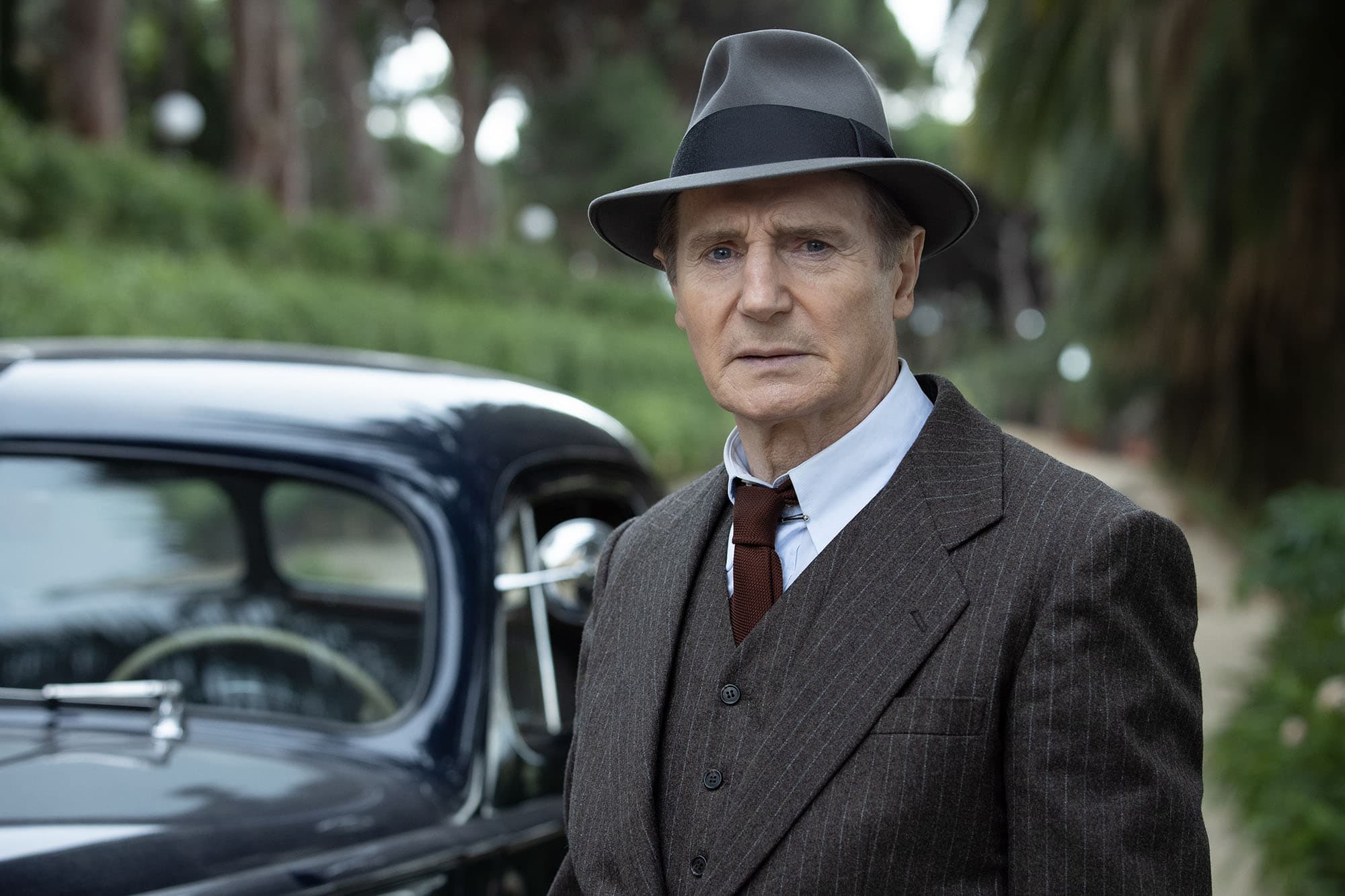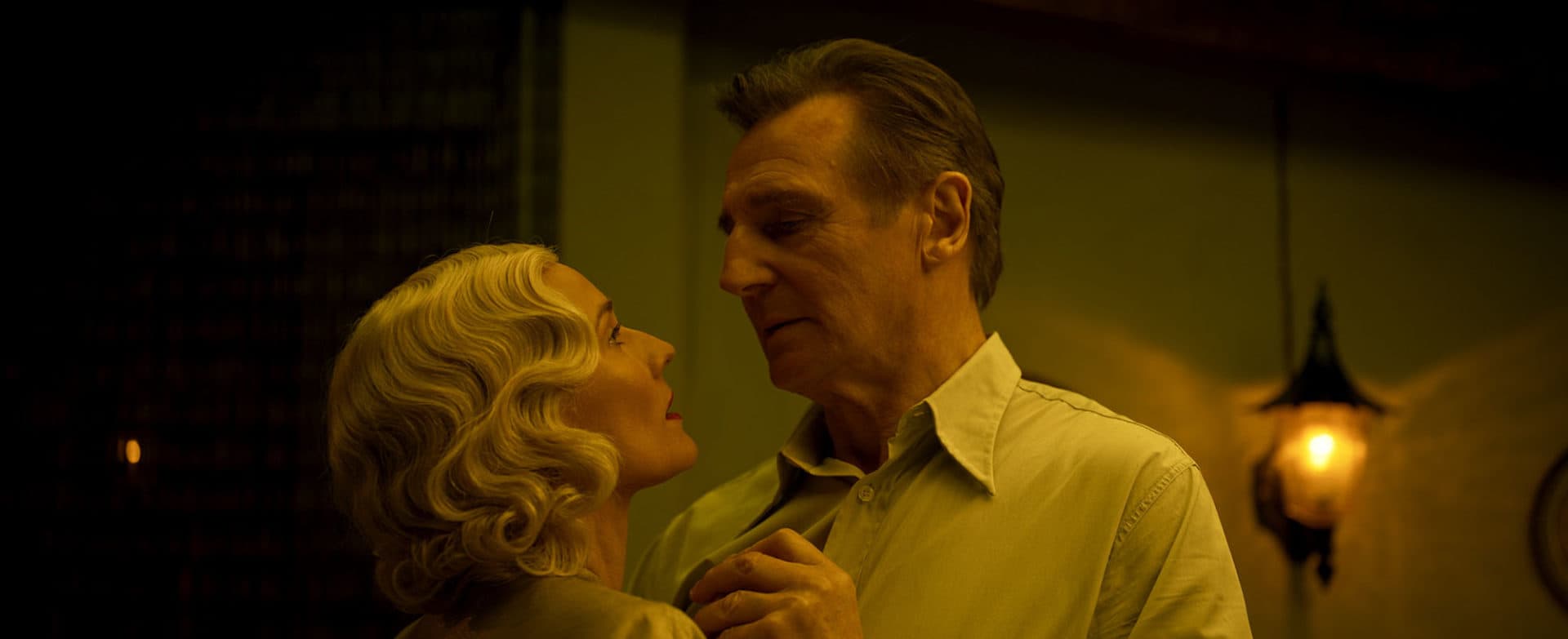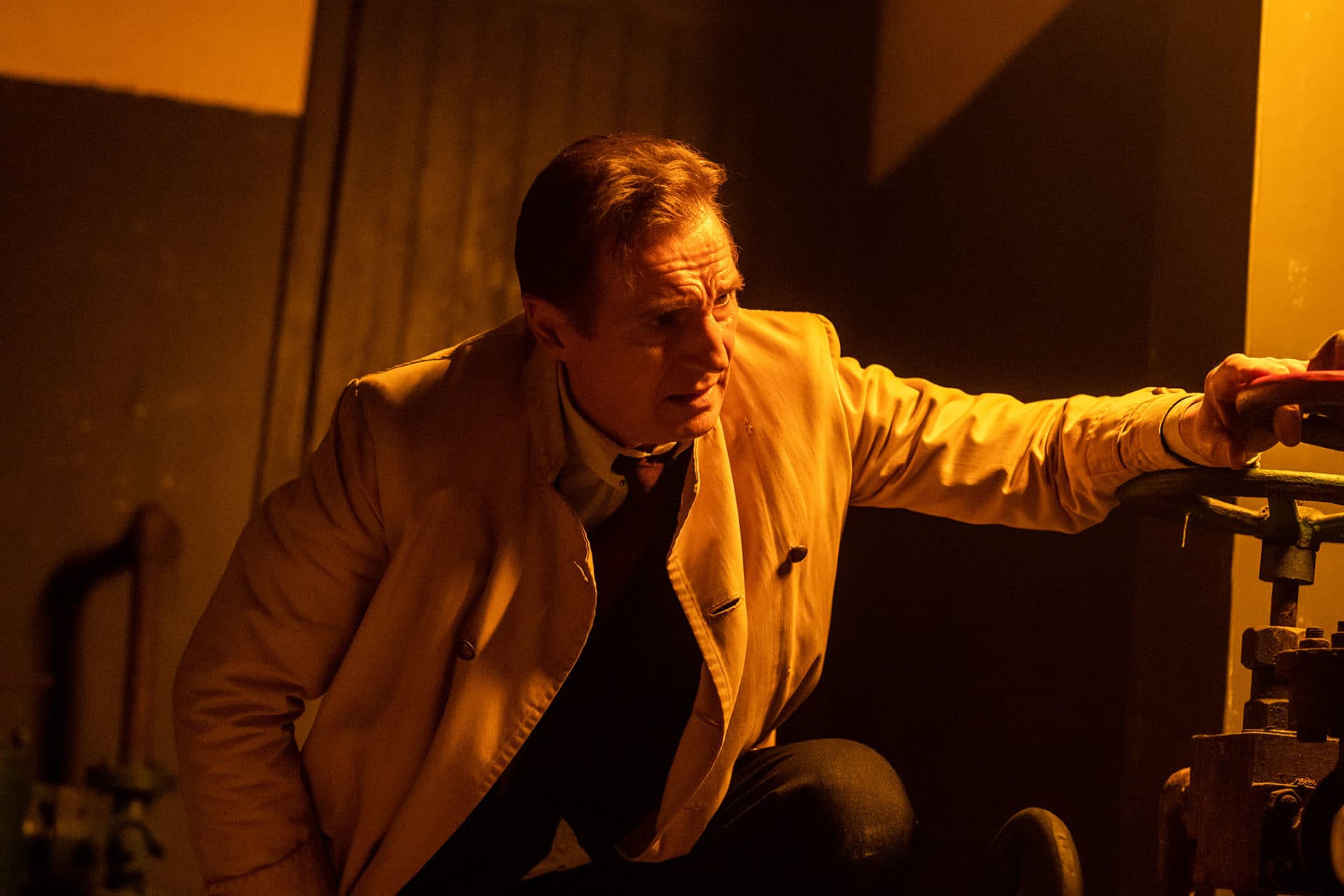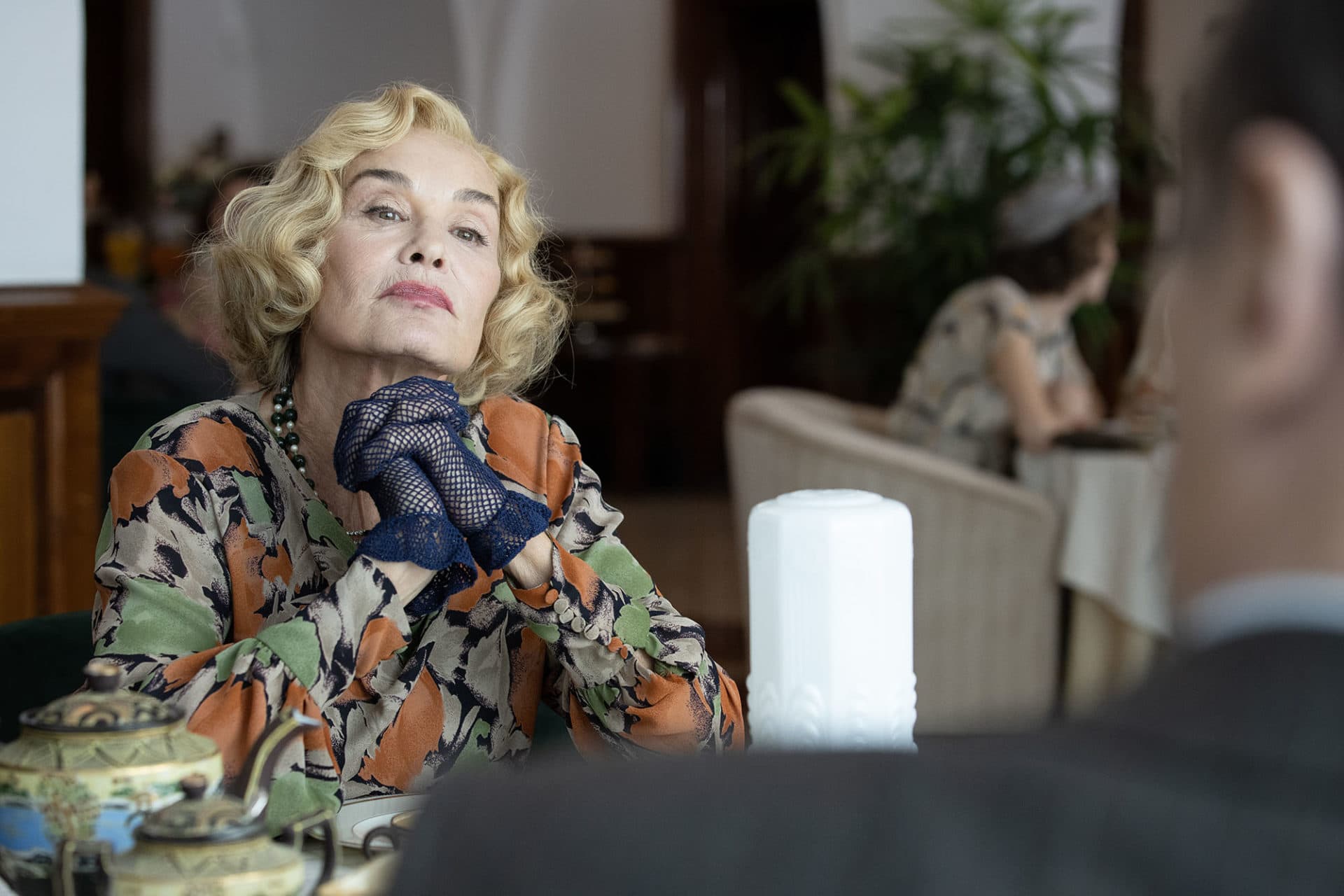Advertisement
Review
Liam Neeson plays Raymond Chandler’s lonely detective, Philip Marlowe, in his 100th film role

The last time we saw Raymond Chandler’s Philip Marlowe onscreen, the perpetually broke and lonely private eye had married an heiress and moved to a swanky suburb. HBO’s 1998 “Poodle Springs,” directed by Bob Rafelson and starring James Caan as the sarcastic shamus, was adapted by playwright Tom Stoppard from Chandler’s unfinished final novel (controversially completed by local legend Robert B. Parker in 1989) and found our hardscrabble hero ill-suited for domestic life. Marlowe being Marlowe, he also couldn’t mesh with the moneyed elite, whose dirty laundry he’d discovered during too many cases over an illustrious career – dozens of books and films plus countless hours of radio and television — spent tussling with corrupt officials, complicit cops and decadent denizens of a City of Angels where everything was for sale. Everything, that is, except for Philip Marlowe.
“Down these mean streets a man must go who is not himself mean, who is neither tarnished nor afraid,” Chandler famously explained, “He must be, to use a rather weathered phrase, a man of honor—by instinct, by inevitability, without thought of it, and certainly without saying it.” The character’s scruffy nobility has been embodied on the big screen over the decades by Humphrey Bogart, Robert Mitchum, Dick Powell and James Garner with a romanticism that resists modernization. Indeed, the movies’ most radical yet strangely faithful conception of Marlowe was in Robert Altman’s 1973 masterpiece “The Long Goodbye,” which set Elliott Gould’s 1940’s knight errant adrift in an amoral, Watergate-era Los Angeles, where his decency was a walking anachronism.

Director Neil Jordan’s “Marlowe” begins with our incorruptible detective – now played by Liam Neeson – back to basics, catching cases nobody else wants in a crummy office downtown and aggravating the authorities whenever he won’t stop snooping. A flirty dame (Diane Krueger) shows up asking Marlowe to find her missing lover – a hunky propmaster from Pacific Pictures who was supposedly killed in a hit and run outside a swanky Hollywood country club. But if her dear Nico is as dead as they say, how did she just see him driving down the street in Tijuana? And if he is still alive, whose body was that in the morgue?
“Marlowe” is based not on one of Chandler’s original stories but rather 2014’s “The Black-Eyed Blonde,” which Irish novelist John Banville wrote as a not-unconvincing exercise in literary ventriloquism under the pseudonym Benjamin Black. The story is a knowing pastiche of nifty noir setups and double-crosses, adapted by director Jordan and Boston’s own William Monahan as a primo opportunity for actors to spit hard-boiled dialogue in each other’s faces. Monahan, who won an Oscar for scripting the glorious arias of profanity that powered “The Departed,” is especially up to the task here, crafting some magnificently insolent insinuations for Marlowe, a man forever unimpressed by displays of wealth and power, infuriating the opportunists around him as he “has no self-interest upon which can be relied.” Or, as another exasperated cop describes it, “your Sir Lancelot s—t again.”

On paper this all sounds perfect, yet almost nothing in the picture works. I found myself leaning forward in my seat, wondering why I wasn’t enjoying it more. For starters, this is one bizarre-looking movie. Shot in Barcelona and Dublin, it doesn’t bear much resemblance at all to Chandler’s Los Angeles. Cinematographer Xavi Giménez slaps a sickly yellow filter on everything and uses wide angle lenses to emphasize the enormous, artificial sets, with seedier interiors illuminated by anachronistic blacklights and pink neon. Jordan has said in interviews he wanted to play up the exotic period trappings by shooting “Marlowe” as one would a science-fiction film, but instead the whole movie looks like it came from outer space.
The director should be a fine fit for the material, as his 1986 classic “Mona Lisa'' was one of the key films of that decade’s neo-noir revival, and his delightful 2002 “The Good Thief” starred a similarly chivalric Nick Nolte in a sly reworking of Jean-Pierre Melville’s “Bob le Flambeur.” Yet some of Jordan's staging here borders on the surreal. There's a scene in which Neeson and Jessica Lange (hamming it up – or would that be corned beef and cabbaging it up? — as Krueger’s conniving Irish mom) attempt to have a coy conversation while he walks along a high embankment and she rides a horse some distance below. The camera can barely keep track of them and I have no idea how they’re able to hear each other, especially given Lange’s blarney brogue.

The whole fun of detective stories like this is that they’re structured so that great character actors can stroll in for a scene or two and tear it up before our hero moves on to the next clue. “Marlowe” has no shortage of terrific turns from old reliables like Colm Meaney, Ian Hart and Alan Cumming showing up to shout insults and important exposition, when they’re not being upstaged by strange shots of the scenery. The best of the bunch is Danny Huston, fulfilling his genetic legacy with an homage to his father John’s “Chinatown” performance, as a punctilious country club manager whose etiquette drips with effortless menace. He’s almost scary enough to rouse his sleepy scene partner.
“Marlowe'' is being advertised as Liam Neeson’s 100th film. I haven’t checked the numbers, but I’d believe you if you told me it was his 100th since “Taken.” As much fun as it was at first to watch an Oscar-nominated, acclaimed thespian confound everybody’s expectations with a mid-career shift into Charles Bronson territory, 15 years of trashy action films have clearly taken their toll on Neeson. His hangdog civility comes off as exhausted in “Marlowe,” as does the film’s apparent obligation to throw in some gratuitously grisly, unconvincing fisticuffs with disposable henchmen here and there to appease fans of the actor’s Dadsploitation thrillers. He briefly comes to life alongside his old “Rob Roy'' co-star Lange, but the movie stumbles badly whenever Neeson is supposed to have sexual chemistry with her daughter. One should never come away from a femme fatale seduction scene thinking the detective needs a nap.
“Marlowe” is now playing in theaters.
